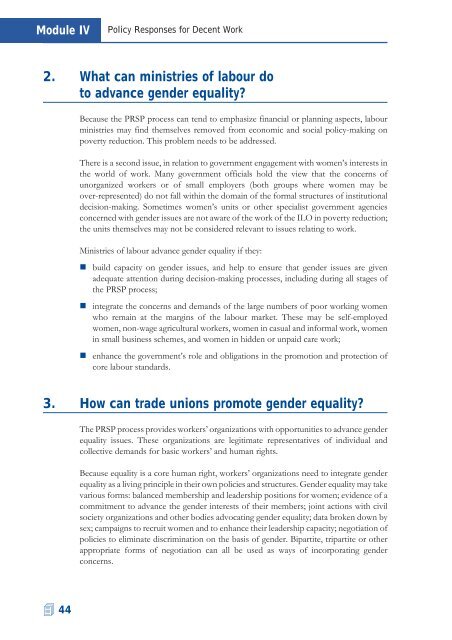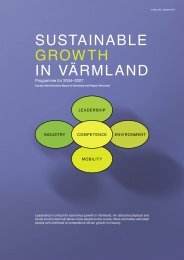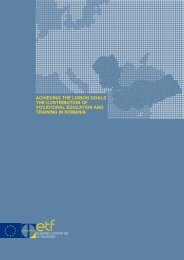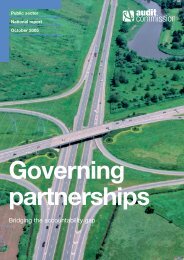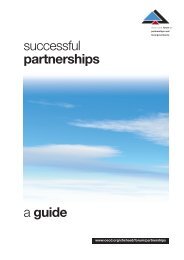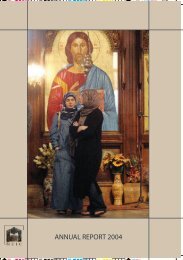PDF (345 KB ) - Document Database website
PDF (345 KB ) - Document Database website
PDF (345 KB ) - Document Database website
You also want an ePaper? Increase the reach of your titles
YUMPU automatically turns print PDFs into web optimized ePapers that Google loves.
Module IV<br />
Policy Responses for Decent Work<br />
2. What can ministries of labour do<br />
to advance gender equality<br />
Because the PRSP process can tend to emphasize financial or planning aspects, labour<br />
ministries may find themselves removed from economic and social policy-making on<br />
poverty reduction. This problem needs to be addressed.<br />
There is a second issue, in relation to government engagement with women’s interests in<br />
the world of work. Many government officials hold the view that the concerns of<br />
unorganized workers or of small employers (both groups where women may be<br />
over-represented) do not fall within the domain of the formal structures of institutional<br />
decision-making. Sometimes women’s units or other specialist government agencies<br />
concerned with gender issues are not aware of the work of the ILO in poverty reduction;<br />
the units themselves may not be considered relevant to issues relating to work.<br />
Ministries of labour advance gender equality if they:<br />
build capacity on gender issues, and help to ensure that gender issues are given<br />
adequate attention during decision-making processes, including during all stages of<br />
the PRSP process;<br />
integrate the concerns and demands of the large numbers of poor working women<br />
who remain at the margins of the labour market. These may be self-employed<br />
women, non-wage agricultural workers, women in casual and informal work, women<br />
in small business schemes, and women in hidden or unpaid care work;<br />
enhance the government’s role and obligations in the promotion and protection of<br />
core labour standards.<br />
3. How can trade unions promote gender equality<br />
The PRSP process provides workers’ organizations with opportunities to advance gender<br />
equality issues. These organizations are legitimate representatives of individual and<br />
collective demands for basic workers’ and human rights.<br />
Because equality is a core human right, workers’ organizations need to integrate gender<br />
equality as a living principle in their own policies and structures. Gender equality may take<br />
various forms: balanced membership and leadership positions for women; evidence of a<br />
commitment to advance the gender interests of their members; joint actions with civil<br />
society organizations and other bodies advocating gender equality; data broken down by<br />
sex; campaigns to recruit women and to enhance their leadership capacity; negotiation of<br />
policies to eliminate discrimination on the basis of gender. Bipartite, tripartite or other<br />
appropriate forms of negotiation can all be used as ways of incorporating gender<br />
concerns.<br />
44


